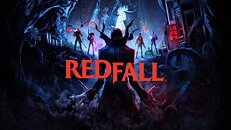T0@st
News Editor
- Joined
- Mar 7, 2023
- Messages
- 2,177 (3.18/day)
- Location
- South East, UK
Phil Spencer, CEO of Xbox Game Studios, appeared on the popular (Xbox-themed) Kinda Funny Games podcast earlier this week for a video interview (Xcast Episode 137). The almost 45-minute long conversation touched upon several topics relating to gaming matters at Microsoft, with the hosts managing to corner Spencer about the recent (not so good) launch of Bethesda and Arkane's horror FPS Redfall. Gaming community feedback has not exactly been encouraging in the wake of the game's release two days ago, and Spencer admits that he shares similar sentiments: "I'll just say all up, there's nothing that's more difficult for me than disappointing the Xbox community. I've been a part of it for a long time. I obviously work on Xbox, head of the business, have a lot of friends, get a lot of feedback. And just to watch the community lose confidence, be disappointed, I'm disappointed. I'm upset with myself. I revisit our process - I think back to the announcement of 60 FPS and then we weren't shipping 60 FPS, that was our punch in the chin, rightfully, a couple of weeks ago. And then seeing the game come out and the critical response was not what we wanted, and it's disappointing."
He continues his thought about reacting to feedback this early on in the process: "What can we learn? What can we get better? One thing I'll fight is what went wrong. There's clearly quality and execution things we can do, but one thing I won't do is push against creative aspirations of our teams. Then a lot of people will say, hey, you've got teams, teams know how to do one kind of game, just force them to go do the one kind of game they have a proven track record for. I'm just not a believer in that. Maybe that means I'll under deliver for some of our fans out there. But when a team like Rare wants to do Sea of Thieves, when a team like Obsidian wants to do Grounded, when Tango wants to go do Hi-Fi (Rush) when everybody probably thought they were doing The Evil Within 3, I want to give the teams the creative platform to go and push their ability, push their aspirations."



Spencer is sorry about the situation and is open to taking part of the responsibility: "But I also need to have a great selection of games that continue to come that surprise and delight our fans. We under-delivered on that and for that I apologize. It's not what I expect, not what I want. But it's ours to deliver." His primary concern lies with Redfall's technical problems, rather than the game's critical reception (in terms of press coverage): "I don't look at the review scores on Redfall - there are quality issues and we're working on those - but I think there's a fundamental piece of feedback that we get that the game isn't realizing the creative vision it had for its players. That doesn't feel like a hey, just delay it. That feels like the game had a goal to do one thing and when players are actually playing they're not feeling that thing, they're not feeling the creative execution of the team."
Spencer discusses his company's internal project postponement strategies: "When a game needs to be delayed, we did with Halo, we did with Starfield, we did with Redfall, because the production timeline is saying, we have this vision, and our production timelines don't get us to the completion of that vision, we do delay games. We do that..." He states that he's a fan of Arkane's past work and legacy, but a good track record is not always indicative of things to come: "Learning about the quality - and there are clearly, I've seen them, I know there are bugs in Redfall - but when I look at the crash rates on the game, because we get all the telemetry of everything that's happened, it's not out of proportion for a game that has just launched. It's in the pocket of what we would expect. That's not to deny any of the animation, streaming of texture bugs, the AI bugs we've seen. We will go work on those. But when I look at the review scores of this game, did we have enough of a creative differentiation in our core idea? And did we realize that creative ambition? I'm a huge supporter of Arkane Austin. Their track record is awesome. I love a lot of the great games they've built. This is one where the team didn't hit their own internal goals when it launched."
Spencer delivers a slightly confusing sentence about getting a product out of the door, even in a less than satisfactory state: "I think it's maybe a little simplistic to just say, hey, if you would have just delayed it three months the core creative of the game would have delivered on something that was different than what it was. So I look at them in different camps. If there's a production timeline issue, we've been open to delaying. If we just have more bugs than we should have at the end of a game, we're open to delaying. At some point we have to have a creative vision and put the game out, and reviewers and players will tell us what they think." The AAA game development industry has become far too reliant on post-launch patches and updates in order to fix various issues - press and fans alike have remained critical of this approach for over a decade. Microsoft and Bethesda have produced yet another repeat of that situation - the Austin, Texas-based branch of Arkane Studios has already promised (weeks before Redfall's launch date) an adjustment to the single-player element's functionality, as well as higher frame rates on Xbox Series consoles.
View at TechPowerUp Main Site | Source
He continues his thought about reacting to feedback this early on in the process: "What can we learn? What can we get better? One thing I'll fight is what went wrong. There's clearly quality and execution things we can do, but one thing I won't do is push against creative aspirations of our teams. Then a lot of people will say, hey, you've got teams, teams know how to do one kind of game, just force them to go do the one kind of game they have a proven track record for. I'm just not a believer in that. Maybe that means I'll under deliver for some of our fans out there. But when a team like Rare wants to do Sea of Thieves, when a team like Obsidian wants to do Grounded, when Tango wants to go do Hi-Fi (Rush) when everybody probably thought they were doing The Evil Within 3, I want to give the teams the creative platform to go and push their ability, push their aspirations."



Spencer is sorry about the situation and is open to taking part of the responsibility: "But I also need to have a great selection of games that continue to come that surprise and delight our fans. We under-delivered on that and for that I apologize. It's not what I expect, not what I want. But it's ours to deliver." His primary concern lies with Redfall's technical problems, rather than the game's critical reception (in terms of press coverage): "I don't look at the review scores on Redfall - there are quality issues and we're working on those - but I think there's a fundamental piece of feedback that we get that the game isn't realizing the creative vision it had for its players. That doesn't feel like a hey, just delay it. That feels like the game had a goal to do one thing and when players are actually playing they're not feeling that thing, they're not feeling the creative execution of the team."
Spencer discusses his company's internal project postponement strategies: "When a game needs to be delayed, we did with Halo, we did with Starfield, we did with Redfall, because the production timeline is saying, we have this vision, and our production timelines don't get us to the completion of that vision, we do delay games. We do that..." He states that he's a fan of Arkane's past work and legacy, but a good track record is not always indicative of things to come: "Learning about the quality - and there are clearly, I've seen them, I know there are bugs in Redfall - but when I look at the crash rates on the game, because we get all the telemetry of everything that's happened, it's not out of proportion for a game that has just launched. It's in the pocket of what we would expect. That's not to deny any of the animation, streaming of texture bugs, the AI bugs we've seen. We will go work on those. But when I look at the review scores of this game, did we have enough of a creative differentiation in our core idea? And did we realize that creative ambition? I'm a huge supporter of Arkane Austin. Their track record is awesome. I love a lot of the great games they've built. This is one where the team didn't hit their own internal goals when it launched."
Spencer delivers a slightly confusing sentence about getting a product out of the door, even in a less than satisfactory state: "I think it's maybe a little simplistic to just say, hey, if you would have just delayed it three months the core creative of the game would have delivered on something that was different than what it was. So I look at them in different camps. If there's a production timeline issue, we've been open to delaying. If we just have more bugs than we should have at the end of a game, we're open to delaying. At some point we have to have a creative vision and put the game out, and reviewers and players will tell us what they think." The AAA game development industry has become far too reliant on post-launch patches and updates in order to fix various issues - press and fans alike have remained critical of this approach for over a decade. Microsoft and Bethesda have produced yet another repeat of that situation - the Austin, Texas-based branch of Arkane Studios has already promised (weeks before Redfall's launch date) an adjustment to the single-player element's functionality, as well as higher frame rates on Xbox Series consoles.
View at TechPowerUp Main Site | Source





